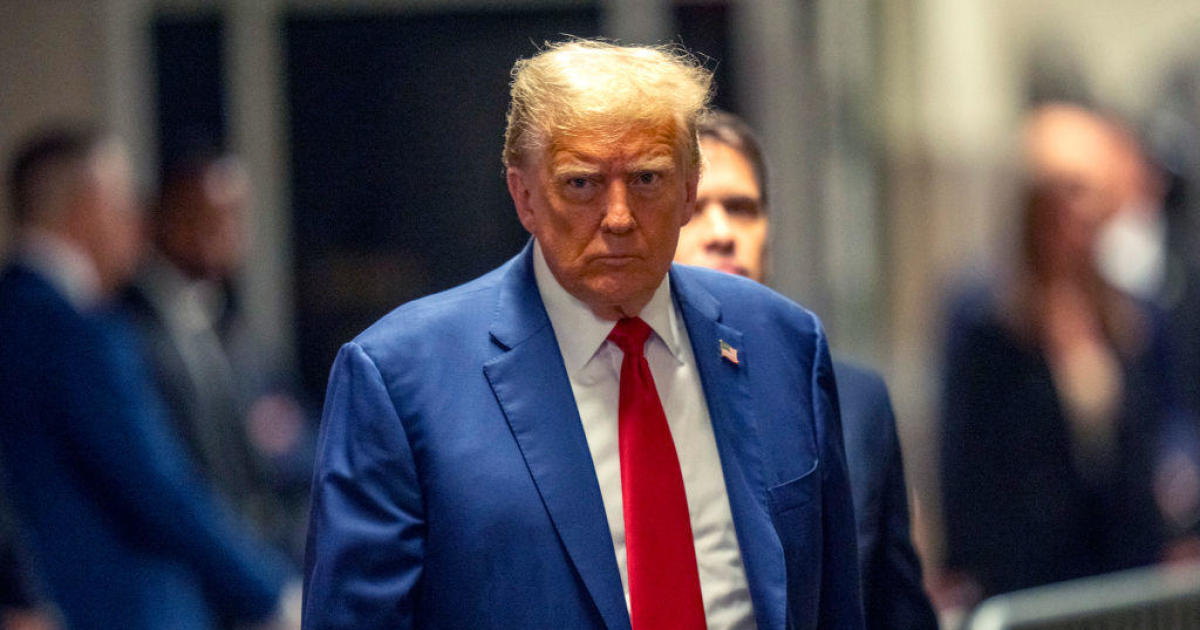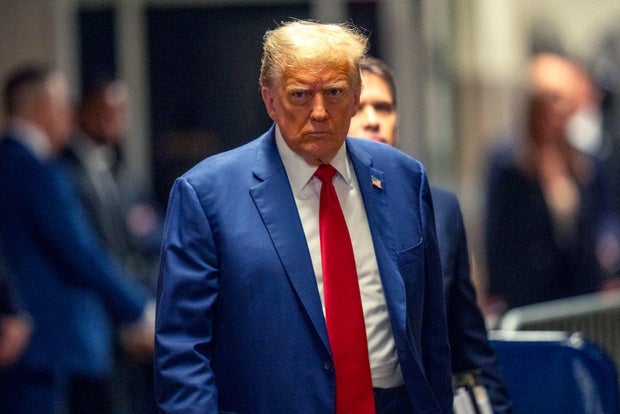The judge overseeing former President Donald Trump’s criminal trial in New York held him in contempt of court for violating a gag order for the 10th time, warning on Monday that future infractions could bring jail time.
Judge Juan Merchan said Trump violated his order on April 22 when he commented on the political makeup of the jury.
“That jury was picked so fast — 95% Democrats. The area’s mostly all Democrat,” Trump said in an interview with the network Real America’s Voice. “It’s a very unfair situation, that I can tell you.”
In his written order, Merchan said Trump’s comments “not only called into question the integrity, and therefore the legitimacy of these proceedings, but again raised the specter of fear for the safety of the jurors and of their loved ones.”
He imposed a fine of $1,000, the maximum allowed under state law. Last week, Merchan fined Trump $9,000 for nine violations in posts on social media and his campaign website. He said Monday that the fines were not having their intended deterrent effect, and that Trump could be jailed for future violations.
“Going forward, this court will have to consider a jail sanction if it is recommended,” Merchan said from the bench as the trial resumed on Monday.
He said jailing Trump was “the last thing I want to do,” since it would disrupt the trial and present challenges for the Secret Service and court officers tasked with protecting the former president.
“The magnitude of such a decision is not lost on me,” he said. But the gag order violations “constitute a direct attack on the rule of law — I cannot allow that to continue.”
Trump faces 34 charges of falsifying business records and has pleaded not guilty.
The Trump gag order
Steven Hirsch / Getty Images
Merchan issued the original gag order in March, before the trial got underway. It barred Trump from commenting on likely witnesses, potential jurors, court staff, lawyers for the prosecution and others connected to the case. The judge later expanded that order to cover his own family members after Trump attacked his daughter over her consulting work with Democratic candidates and progressive causes.
The gag order does not prevent Trump from criticizing Merchan or Alvin Bragg, the Manhattan district attorney.
Merchan found Trump violated the order in nine out of 10 instances raised by prosecutors in earlier motions last week. In Monday’s order, he weighed four more supposed violations, but found that only one violated his gag order.
The three other instances included two comments Trump made about Michael Cohen, his former attorney and a key witness in the case, and one comment about David Pecker, a former media executive who testified earlier in the trial. Trump called Cohen a “convicted liar,” and said during a campaign stop that Pecker “has been very nice.”
Merchan found that those three instances did not constitute violations. He said the comments about Cohen could be considered “protected political speech made in response to political attacks.” Likewise, Merchan said he could not determine that the statement about Pecker “constituted a veiled threat to Mr. Pecker or to other witnesses.”
But Trump’s interview with Real America’s Voice did violate the order, according to Merchan.
“[T]his Court finds that [prosecutors] have established the elements of criminal contempt beyond a reasonable doubt. This Court’s Expanded Order is lawful and unambiguous,” he wrote. “Defendant violated the Order by making public statements about the jury and how it was selected.”
Merchan also threatened Trump with jail time for future violations in last week’s contempt ruling. He reiterated that warning on Monday, but said he would not order him jailed for the latest violation, since it came after his initial ruling.
“Because the offensive statement was made prior to this Court’s Decision of April 30 and because the People are seeking only a monetary fine, the Court will, once again, fine Defendant $1,000,” he wrote. “However, because this is now the tenth time that this Court has found Defendant in criminal contempt, spanning three separate motions, it is apparent that monetary fines have not, and will not, suffice to deter Defendant from violating this Court’s lawful orders.”
Trump, Merchan wrote, “is hereby put on notice that if appropriate and warranted, future violations of its lawful orders will be punishable by incarceration.”

